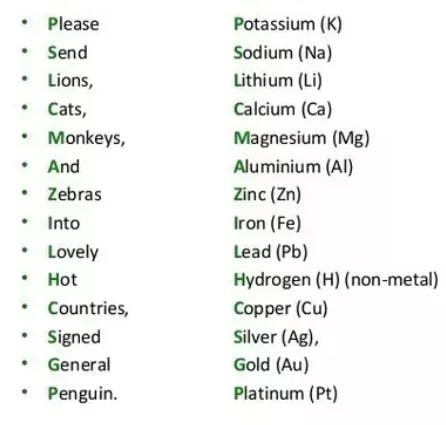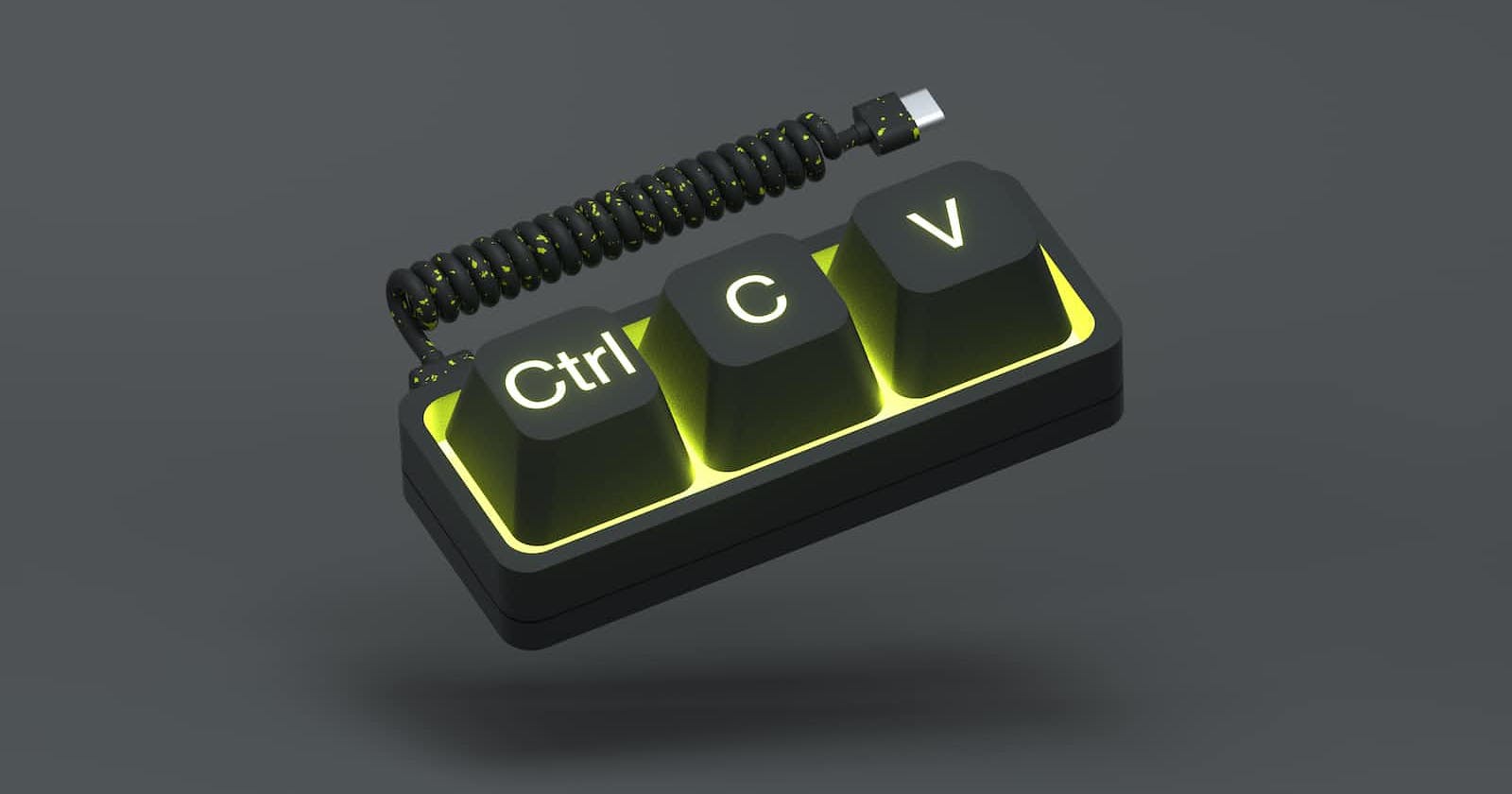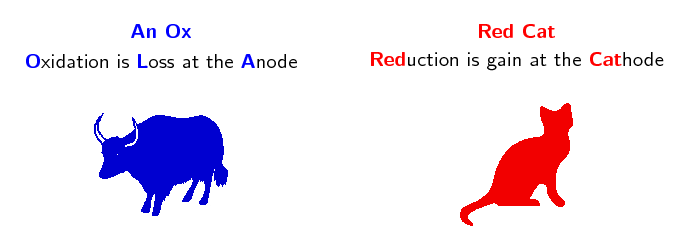"Karl Marx Gave The Proletariat Eleven Zeppelins, Yes"
The purpose of that statement was to express the SI Prefixes ( Kilo, Mega, Giga, Tera, Peta, Exa, Zetta, Yotta ).
The aforesaid "statement" is what you may call a mnemonic ( pronounced: ne-monic ).
According to the Oxford Dictionary, a mnemonic is " a system such as a pattern of letters, ideas, or associations which assists in remembering something."
My chemistry teacher used to mention them pretty often. Mnemonic's like "Red Cat An Ox", which denotes that oxidation occurs at the anode and reduction occurs at the cathode, or some really weird ones for learning the reactivity series.
The problem with them was that I often used to forget the mnemonics themselves. In Red Cat An Ox, I'd often interchange the Ox and Cat. And there go your 2 marks. All because of a silly mnemonic. But aren't they meant for being an easier way out?
I once asked my classmate to present his opinion on mnemonics. The response I received was blunt. He replied that mnemonics were detrimental to his learning skills.
It just doesn't make any sense! The reasoning was his answer was that by depending on such shortcuts which are meaningless, you would be abandoning the entire practicality of science. What is science but experiment --> failure --> experiment --> failure --> experiment --> correction and all over again?
Yes, they do make the job easier but what about your reasoning skills? Let's take the Redox example again. The reasoning behind that was: Oxidation occurs at the positive anode because that is where negative ions lose electrons. Reduction occurs at the negative cathode because that is where positive ions gain electrons.
Let's add up another point to this discussion: I'm tired of using the term "mnemonics" in this discussion. So let's change it up a bit. If you search up on thesaurus for the synonyms for mnemonic, you will find the answer as: clue / hint / suggestion / catchword.
So mnemonics are hints. Now there are two places where you may find "hints" the most. One: When you are inputting a new password. Two: In a puzzle/mystery video game when you are stuck on a level. Now, these are two separate situations where hints are used. The first one is in the form of a safety measure whereas the second one is in the form of an escape or an indication to point you toward the answer. Using the "hint" in the second case would represent a sign of failure or weakness. You were unable to figure out the answer therefore you had to take the help of a clue. Now in the first case, laying down a hint would not only be helpful but also necessary.
In Biology, we may encounter complex terms such as Pneumonoultramicroscopicsilicovolcanoconiosis, which for your information is nothing but a synonym for silicosis. Remember terms in biology can seem like a heavy task. You need to organize and visualize the terms to remember them. That's the only way.
Or perhaps not, for you can always use mnemonics as secondary measures! It is agreeable that biology ( botany specific ) involves the use of terms that can take your cerebrum on a ride. Now in these cases, most people would turn to mnemonics or catchwords to remember them. And this practice, I've been a victim of personally. Sometimes, it just feels to take the easier way! Get that shortcut, quit the organizing and visualizing.
But for how long will you continue this? In a field of biology like osteology ( study of bones ), visualization is a must!
My school's principal often speaks about the after-effects of taking shortcuts.

Yes obviously he meant from a broader perspective but in my opinion, the achievement mentioned above can be any achievement. And this rule applies almost everywhere. Almost.

A mnemonic for the reactivity series of metals ( and hydrogen ) would be: And this is something I still remember. Yes, the mnemonic is as meaningless as expected but for something such as the reactivity series, it is something that I found I could depend on.
Mnemonics, which for someone else may be just a way of mugging up ( which it is ) is sure an interesting topic to debate about. We could perhaps move the topic of discussion to a much broader perspective if this seems too mundane. Let me know in the comment section!


